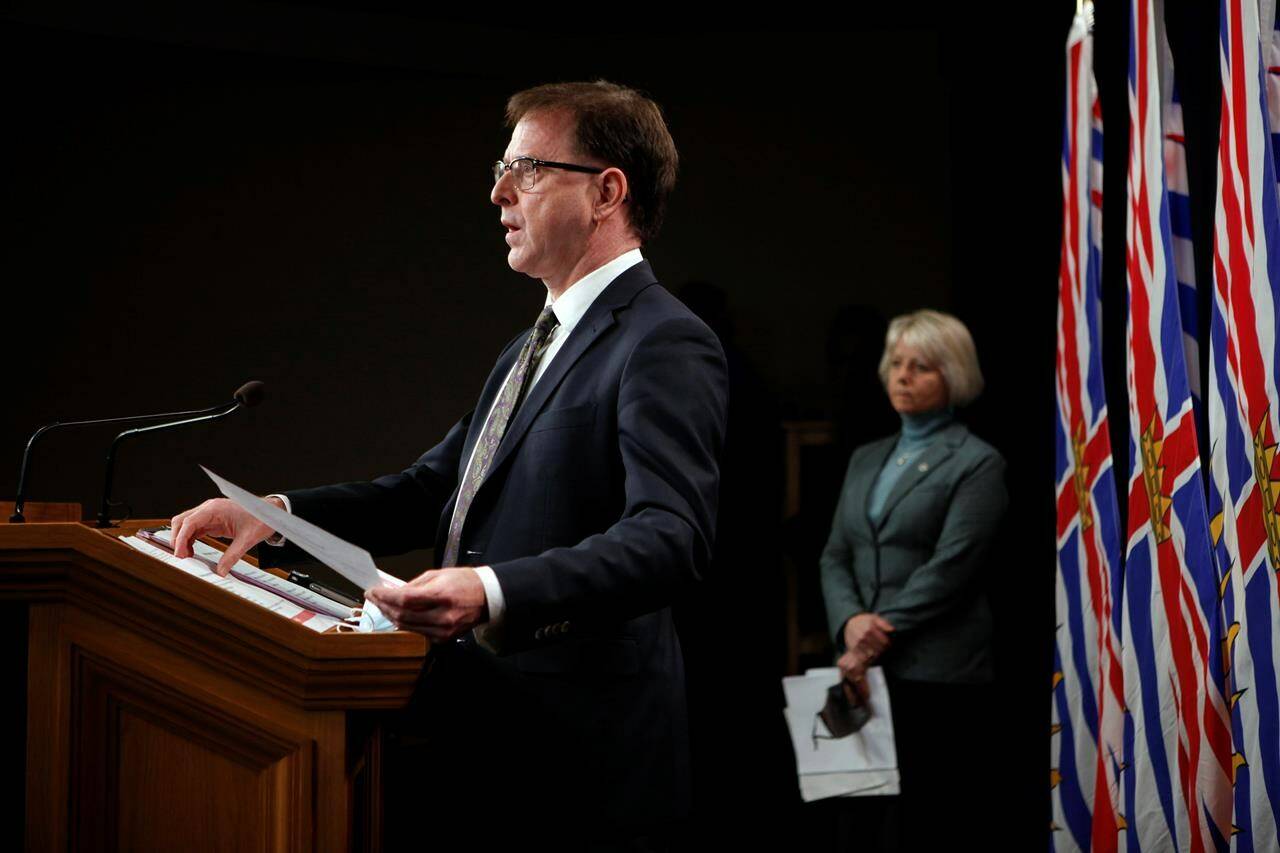British Columbia’s top doctor says the current wave of COVID-19 is causing less severe illness, and that calls for a shift to shorter isolations to minimize societal disruptions and preserve the health-care system.
Dr. Bonnie Henry said unvaccinated adults who test positive are at risk of having longer-lasting and more severe illness and must isolate for 10 days, but staying home for five days is enough for those are vaccinated.
Children are at much lower risk of severe illness and are able to clear an infection faster, so five days’ isolation is also suitable for them, with mounting evidence showing they need to interact with others as part of their social development, Henry said Friday.
People who have been exposed to someone with a COVID-19 infection do not need to stay home because everyone can assume they have been in contact with someone who has contracted the virus, she said.
“We cannot eliminate all risk, and I think that’s something that we need to understand and accept as this virus has changed and has become part of what we will be living with for years to come.”
Vaccination remains the best way to dramatically reduce the risk of severe illness leading to hospitalization, especially for vulnerable groups and people over age 70, Henry said.
Preventing an infection should also include “the basics” of regular handwashing, wearing a good-quality mask when indoors and keeping gatherings small, she said, adding people at higher risk must be extra cautious.
The precautions are the same as managing other respiratory illnesses, including influenza and the common cold, Henry said.
“Particularly if you have a fever, you need to stay home and stay away from others. But if you have a mild illness like a sore throat or the sniffles, stay home. And if you feel better the next day then you can go back to school or work or child care.”
Testing for COVID-19 is not recommended for most people who have mild symptoms, but those who are immunocompromised and over 70 could end up with more serious illness and likely need a test, she said.
Henry says COVID-19 is far from being an endemic illness, so the current restrictions in place are needed to prevent more hospitalizations, though those numbers have been declining.
Events with over 1,000 people are limited to 50 per cent capacity and all sports tournaments have been suspended until Feb. 16. Bars and nightclubs must also remain closed until then.
“Because of the amount of transmission that we’ve seen and the amount of immunity that we’ve developed from vaccination and from the transmission of Omicron, we’re probably going to have a much more gentle summer than we’ve had for the last two summers,” Henry said. “And then we’ll have to prepare ourselves for whatever comes next in the fall.”
Health Minister Adrian Dix said B.C. will be receiving over 15.7 million rapid tests by mid-February for distribution to long-term and assisted-living centres, health-care facilities, schools and post-secondary institutions.
—Camille Bains, The Canadian Press
RELATED: B.C. COVID-19 hospital admissions slowing, latest testing shows
RELATED: Omicron may be peaking but COVID-19 isn’t done with us just yet: Tam

